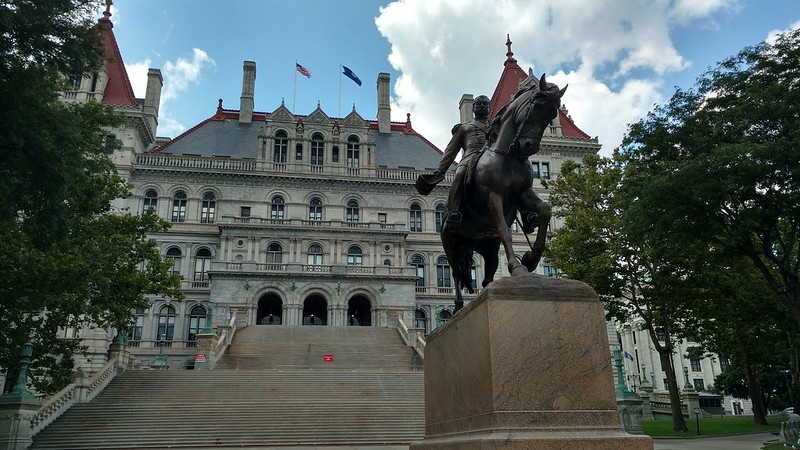
In the Empire State, both the Assembly and Senate have introduced budgets that would impose nearly $7 billion in new taxes on businesses and individuals. Legislative leaders continue to push tax hikes even after The American Rescue Plan, and its blue state bailout, will send $100 billion in federal aid to the state of New York.
After the bill is signed into law, experts stress that tax hikes will no longer be needed. “The ARP, together with higher than expected income tax revenues, definitely closes the state and city budget gaps and makes tax increases this year or next unnecessary,” said Kathryn Wylde, CEO of the New York City Partnership to the New York Post. Even the office of Senator Chuck Schumer (D-NY) said earlier this month that federal pandemic relief would solve New York’s deficit and eliminate the need for new taxes.
Tax hikes will make New York more unaffordable, and keep the exodus of high earners and business owners flowing out of the state. Hiking taxes during the pandemic, while the state is flush with bailout money, shows New Yorkers that Albany lawmakers will put their big spending priorities before jobs, families, and taxpayers in any circumstance. It’s also a reminder to the out of state taxpayers footing the bill for New York’s negligence that the state will keep digging holes and demanding handouts well into the future.
The proposed new taxes include:
- A graduated tax hike on millionaires. The current income tax rate for single filers making more than $1 million and couples earning more than $2 million is 8.82 percent. That rate would rise to 11.85 percent.
- There also would be two new brackets: one for taxpayers earning between $5 million and $25 million and another for those making more than $25 million. The former would be taxed at a 10.85 percent rate, while the later would be slammed with 11.85 percent.
- A new capital gains tax of 1 percent on those earning more than $1 million a year, boosting state coffers by about $700 million.
- A new progressive state tax on those with pied-a-terre’s, mansion town homes — or anything in between — used as a second home in New York City. The new levy would raise a projected $300 million for the state.
- An estate tax boost from 16 percent to 20 percent, raking in another $130 million.
- A new 18 percent “surcharge” on corporate franchises, utilities and insurance companies — which could mean higher bills for customers. That tax would generate $1 billion, the lawmakers said.
- The reinstatement of a minimum business tax on corporate capital, earning another $150 million for the state.
- A recording tax on “mezzanine debt and preferred equity investments,’’ which would add another $171 million to state coffers.
“These proposals would raise New York’s top state income tax rate to its highest statutory levels since 1979, when it was 12 percent,’’ said EJ McMahon, fiscal analyst at the watchdog Empire Center for Public Policy. At a time when New York desperately needs to retain investment for a healthy recovery, the approach by Democrats to tax everything from Wall Street to small businesses seems quite foolish.

